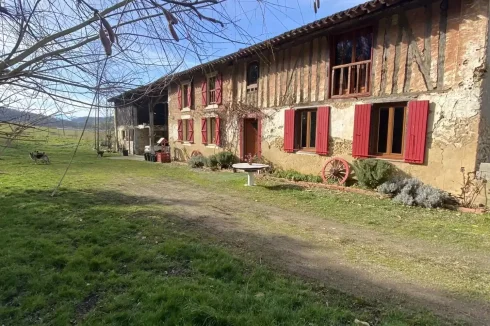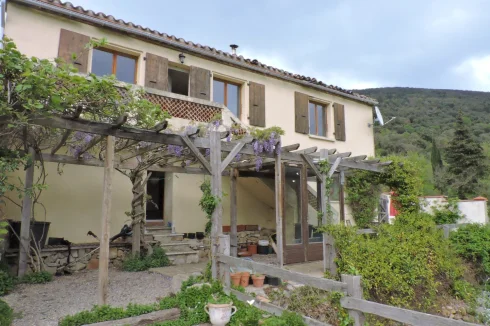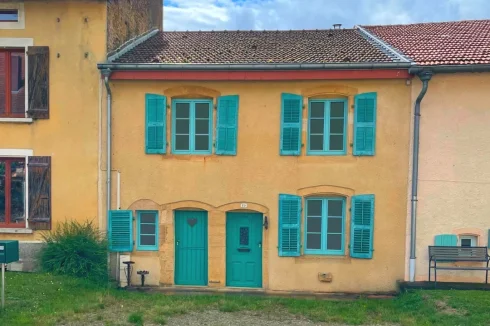Access to Health Care by EEA Residents
Thursday 16 May 2019
The French Ombudsman has expressed concern at the difficulties being encountered by EEA residents in obtaining health cover in France.
We have reported regularly in these pages on the problems that frequently confront early retirees from the EEA obtaining access to the French health system.
Although ostensibly there is 'freedom of movement' in Europe, such a right only exists on an unconditional basis for those in employment or business.
For everyone else it is subject to the double condition of a minimum level of resources and health cover. In the context of Brexit, we considered these conditions earlier this year in our article Brexit and Residence Rights in France.
Whilst the UK remains in the EU that does not present a problem of entry to France, due to the lack of border controls or the need for a visa, but it can be an issue when making an application to join the health system.
This is particularly the case for early retirees in France, as under French law they cannot obtain access to the health system under 5-years legal residence. Those in work or pensioners with an S1 have an automatic entitlement to health cover.
This restrictive policy, introduced in 2011, is one that has been contested by the European Commission, and on which France has had to row back in order to meet their objections.
Nevertheless, in a report published this month, the Défenseur de Droits, states that EEA nationals continue to face unacceptable difficulties in obtaining health cover, with practices being adopted that are contrary to both French and European law.
The ombudsman does not mince words in stating that local health officials are making up their own rules and that the problems he has witnessed are getting worse, stating: "ces difficultés tendent aujourd’hui à s’accentuer."
Among the problems he cites are those who are married to a national of a non-EEA country, with health cover either being denied to the family member, or considerable delays occurring in the processing of their application. Under Article 9 of European Directive 2004/38 (which has been transposed into French law) family members of an EEA national have the right to a residence permit, and refusal of cover in France is illegal.
In other cases, local officials are advising EEA nationals who are resident in France they should use their European Health Insurance Card (EHIC) for health treatment, despite the fact that this card should only be used by visitors to France. He states: "il arrive que les caisses renvoient vers ce dispositif des ressortissants européens titulaires d’une CEAM en cours de validité, alors même que ces derniers ne sont pas de passage en France mais s’y établissent."
Alternatively, officials are demanding that applicants provide proof they are no longer entitled to health cover from their EEA country of origin through an S1 health certificate, stating: "Or, il semblerait que certaines caisses s’appuient sur ces mécanismes de «portabilité» des droits réservés à ces quelques cas relativement rares pour exiger plus généralement de tous les autres ressortissants européens inactifs qu’ils démontrent l’absence de droits acquis dans un autre Etat membre et «portables» en France."
Although those in receipt of a State retirement pension are entitled to health cover in France from their country of origin through an S1 certificate of exemption, the S1 certificates are not available to early retirees from the UK. We are aware from your mails that many early retirees have been obliged to ask the International Pensions Office in the UK to confirm that they are no longer entitled to health cover from the UK or that they have no entitlement to an S1.
The ombudsman concludes that demanding early retirees to use their EHIC, or to prove they have no entitlement to an EHIC, or that they have no entitlement to an S1 certificate is illegal, unambiguously stating: "Ces renvois systématiques vers des mécanismes de «portabilité» sont illégaux."
The report also briefly considers the role of the central processing centre for early retirees, called the Centre des Ressortissants Européens Inactifs Cmuistes (CREIC), which is based in Nimes.
Although all applications by economically inactive early retirees must, in the first instance, be made to the local health authority (CPAM), the application is then sent by the CPAM to the CREIC.
It is the CREIC, and not the CPAM, who make the final decision on whether the application can be accepted, although it is the CPAM who will then deal with registration.
This practice, introduced in 2012 against the backdrop of a dispute with the European Commission, is meant to introduce a greater degree of uniformity into the consideration of applications for health cover by early retirees. However, the ombudsmen expresses concern about the opaque nature of the process and the delays that are occurring in processing of applications, during which time applicants are without health cover.
All the evidence we have seen to date is that the overwhelming majority of applications to the CREIC are being accepted, but where delays or refusals are occurring this is primarily because the applicant may not meet the test of minimum resources. It is also likely to be the case that officials are behind with their caseload.
Since 2016, with the introduction of 'PUMA' (Protection Universelle Maladie), such applications to CREIC now appear to frequently include those for the spouse of an EEA national who is employed or in a business in France, where the spouse is economically inactive.
This in turn is bringing about its own problems, as an inactive spouse/civil partner has to make a separate application for health cover to their local CPAM, where previously they were automatically registered for health cover as a 'dependant' of their working partner. Minors continue to be affiliated through the professional working partner, although other adults in the household also need to make their own application.
The process brings with it the inevitable paper-chase, and substantial delays are also occurring in the consideration of such applications, although we have yet to hear of any that have been refused.
Although the application form includes questions relating to income, a test of resources to assess the legal residence of family members of someone professionally engaged in France would also be illegal under European law. The income assessment can only be used to assess liability to the PUMa health charge, itself something of an anomaly.
Since 2017, the law in France has been changed to make it clear that inactive family members are not subject to a minimum of three-months residence. It is silent on the test of resources as a requirement of legal residency, but this should equally not apply where their spouse is in employment or business.
Thus, Article D160-2 of the Code de la sécurité sociale states: "La condition de stabilité de la résidence est également satisfaite, sans délai, pour la personne qui présente un justificatif démontrant qu'elle relève de l'une ou l'autre des catégories suivantes :................. Membres de la famille au sens de l'article L. 161-1 qui rejoignent ou accompagnent pour s'installer en France un assuré y séjournant dans les conditions prévues à l'article L. 160-1."
The same Article also states that local health authorities should proceed to grant a right to health cover 'automatically' to such family members, stating: "Les caisses primaires d'assurance maladie sont habilitées à procéder d'office à l'ouverture des droits à la prise en charge des frais de santé des personnes mentionnées à l'article L. 160-5 lorsqu'elles ont connaissance qu'elles remplissent les conditions prévues par cet article."
That would seem to imply that provided evidence (for instance, business registration number) of the business or salaried status of the working family member is provided, and they have been resident for at least three months, the spouse should be registered.
The ombudsman points out in his report that not all health authorities have clearly recognised this rule, although once again, despite the difficulties, the evidence does suggest that most applications are being approved. The main problem is one of delay.
Do please continue to tell us about your experiences. You can contact us at [email protected].
Advice
You can discuss your health insurance requirements with our English language speaking health insurance partner, who is able to offer competitive policies for both private health and 'top-up' cover.
Thank you for showing an interest in our News section.
Our News section is no longer being published although our catalogue of articles remains in place.
If you found our News useful, please have a look at France Insider, our subscription based News service with in-depth analysis, or our authoritative Guides to France.
If you require advice and assistance with the purchase of French property and moving to France, then take a look at the France Insider Property Clinic.





